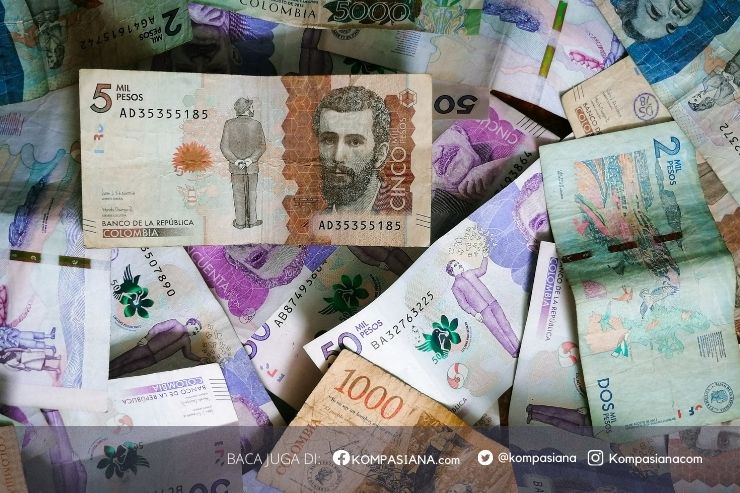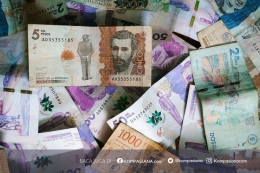According to Begovic (2005, p 2),corruption is the intentional non-compliance with the arm’s-length principle aimed at some advantage for oneself or for related individuals from this behavior. We know that corruption is not a new problem in Indonesia and it becomes worst. Almost every day we hear news about it. According to the data, Indonesia even is ranked 88 of 163 countries with the highest levels of corruption (Mohamad, 28 January 2016). The highest level of corruption in Indonesia has caused new problems such as poverty, slow development of infrastructure, increasing the state debt, decreasing state revenues, etc. Therefore it is important for us to combat corruption in various ways because corruption is the root of many problems for the country.
First, we should be closed to God. Before we are closed to God, we should believe that God exists, then we will believe in the Day of Judgment. So we will be more cautious in our behaviour. We will always remember that everything we do in this world is always known by God. Although we try to hide it, God will always know. Various ways that we can do to draw closer to God: religious education from young, instilling religious values, carry out all the commands of God and away from the ban etc. Close to God is our main foundation in behaviour, so that if we always remember God then surely we will avoid misconduct.
The second is to provide a severe penalty to corruptors. Severe sanctions would make corruptors deterrent. Severe sanctions should not be a punishment stipulated in the law but can be a social sanction as to isolate the perpetrators of corruption. Social sanction is sometimes more effective than the death penalty or life imprisonment because social sanctions such as social exclusion, the corruptors will feel discomfort in life. This is because no people even their family that will support them, otherwise the community and his family even hate them. However, more severe sanctions such as imprisonment, life imprisonment and the death penalty are also necessary in order to make criminals more deterrent. However, the penalties will be effective if the government and societies are serious in combating corruption and there are firmness laws.
The third is the elimination of remission for corruptors. We know that in Indonesia, criminals may receive remission or reduction of sentence under the provisions of law. In 2015, precisely when Indonesia's independence day, 1.938 prisoners received a remission of corruption cases (Putri, 17 Augustus 2015). I think remission for corruptors is not appropriate because it would reduce the deterrent effect for them. With remission, corruptors will not be afraid of committing corruption because, in their minds, they will most likely receive a remission so that the penalty will be reduced and be free sooner. Remission also shows indecision of law in combating corruption. We know that the level of corruption in Indonesia is quite high and if the reduction of the punishment given to corruptors, the penalty has been given to those who are not so mean more to the nature of Indonesian society that is forgiving and easy to forget that when corruptors get out of jail, there will be no moral burden.
The level of corruption in Indonesia has become worst. Corruption occurs throughout the community level. This proves that all elements of society can be potentially engaged in corruption. Lack of religious values, consumer behaviour and indecision of law in combating corruption is perceived as a major factor of corruption. Various ways can be done by the public and the government to combat corruption such as providing religious education from an early age, providing severe sanctions for corruption, and the abolition of remissions for corruptors. But the role of the community is also needed to contribute to combating corruption. Thus the active role of all parties, both from the public and the government is essential in combating corruption and to minimize the possibility of corruption.
References
Begovic, B. (2005). Corruption: Concepts, Types, Causes, and Consequences. Economic Reform Feature Service, 2.
Mohamad, Ardyan. (2016, January 28). 2016. Indonesia urutan ke-88 indeks korupsi dunia, naik 19 peringkat [web log post]. Retrieved from https://www.merdeka.com/dunia/
indonesia-urutan-ke-88-indeks-korupsi-dunia-naik-19-peringkat.html.
Putri,Arny Christika. (2015, Augustus 17). 2015. 1.938 Narapidana Kasus Korupsi Terima Remisi HUT RI Ke-70 [web log post]. Retrieved from http://photo.liputan6.com/news/
1938-narapidana-kasus-korupsi-terima-remisi-hut-ri-ke-70-2295322.
Follow Instagram @kompasianacom juga Tiktok @kompasiana biar nggak ketinggalan event seru komunitas dan tips dapat cuan dari Kompasiana. Baca juga cerita inspiratif langsung dari smartphone kamu dengan bergabung di WhatsApp Channel Kompasiana di SINI







